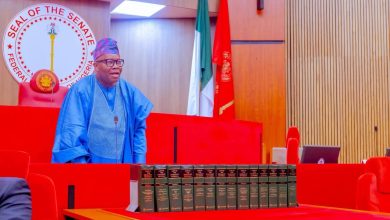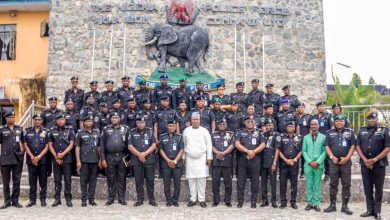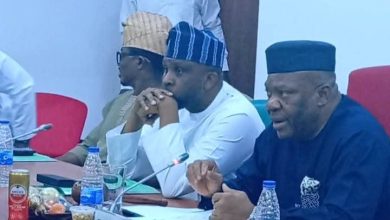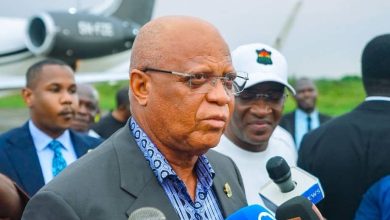Closure Of Illegal Schools: Stakeholders Want Reforms In Akwa Ibom Education Sector
By Kufre John
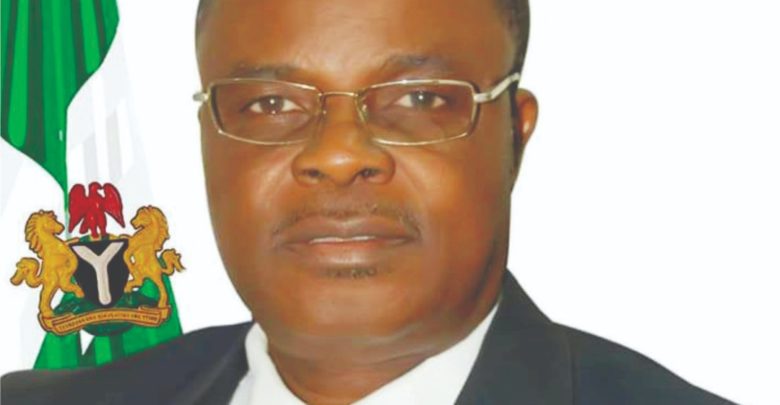
Private schools the world over have made enormous contribution towards educational upbringing of the populace. They have contributed to the redefinition of knowledge base of individuals who see to the need to make their choice in building their intellectual capacity.
Private schools also serve as alternative employment to qualified teachers who could not get jobs in government owned institutions. They help in tacking unemployment among the youths, men and women worldwide.
These schools also have a reputation for maintaining high standard of discipline and respect, which prompted the sudden preference by most parents for them instead of government owned institution not even with free education in the latter in Akwa ibom state.
However, Akwa Ibom State Government’s intension to close down 1,140 “illegal” nursery, primary and secondary schools in the state has continued to generate interest and comments from stakeholders, parents, School Proprietors, government and citizens of the state.
The right to basic education to every Nigerian child, as enshrined in the Child Rights Act of 2003 in Article 15 (1), has been domesticated under the Childs Rights Law of Akwa Ibom State since 2008. That piece of legislation gives every child in the State the right to compulsory, free and qualitative basic education.
In the Fundamental Objectives and Directives Principles of State Policy, as contained in Chapter 2, Section 13 of the 1999 Constitution of the Federal Republic of Nigeria (as amended), government is saddled with the responsibility of ensuring that education for Nigerian children is free and qualitative.
With various stakeholders appealing to government to tread softly owing to the enormous impact the closure will have on the pupils and teachers, the state government has insisted on carrying out the directive of the closure to the latter and has started its implementation.
Among the Stakeholders who has openly, taken position on the raging issue in the state is the Civil Liberties Organisation (CLO), Akwa Ibom State Branch.
The group after a critical analysis of the situation said the they recognize the right of the Akwa Ibom State government to regulate supervise and set standards for the operation of educational institutions, especially at the nursery, primary and secondary school levels in the State.
CLO appreciates the efforts of government to ensure that Akwa Ibom youths are properly educated to enable them compete favorably in an increasingly competitive environment of a globalised world and described as timely the recent Education Summit aimed at addressing pressing educational issues in the State.
CLO in a statement endorsed by its Chairman Otuekong Franklyn Isong and Comrade (Barr.) David Augustine Campaigns/Publicity Secretary and made available to our correspondent condemned the mushrooming of substandard schools in the State, as they constitute a setback in the State’s march to a well-educated citizenry.
“We urge the government to do everything possible to check the trend and ensure that only Schools that meet the standards are allowed to operate in the State.
It is however, the wish of the Civil Liberties Organisation to point out a number of issues that government must first address before proceeding to sanitise the school environment.”
CLO draws attention of the State government to the report published by Premium Times in 2018, wherein, the online newspaper catalogued the many ills of the school system in Akwa Ibom State. Such shortcomings include deplorable state of infrastructure in public schools all over the state, the scarcity of teachers in many schools, especially those in the rural areas, the lack of basic teaching materials, and lack of libraries, computer laboratories, science laboratories and other things that aid learning in public schools.
“We note with regret that the Premium Times report was politicised without the state government taking benefit of the report to carryout fundamental reforms in the educational sector.
CLO wishes that government looked at the state of learning and teaching environment in public schools, which necessitated the rush by parents to withdraw their wards from public schools. It is instructive that even teachers in public schools do not send their children to public schools, let alone the well-heeled government officials and civil servants in the State.
The proliferation of private schools in the State is because of the comatose nature of standards in public schools. These schools sprang up to fill the existing gap in education at that level. So government must, as a matter of urgency, rise to its responsibilities by ensuring that the standards they wish the private schools to have, must first, be maintained by government in public schools. Government cannot be carrying a log in its eyes and expect to remove the speck in the eyes of the so-called “illegal” schools.
It is sad to note that many communities in the State have no public schools at the primary and secondary school levels. Therefore, the now “illegal” schools came because of such gaps. For a very long-time now, successive governments have not deemed it right to establish new schools in the State.
These are unfortunate gaps that businesspersons and women are cashing in on to milk residents of the State in the name of private schools”.
Thus, the CLO urge the Akwa Ibom State government to first rehabilitate existing public schools all over the State, equip them to make way for a more conducive learning and teaching environment that erases the past, recruit more teachers, retrain those already in service, give them befitting remuneration and cater for the welfare of retired teachers in the State.
“The Akwa Ibom State government should commence immediate and massive establishment of schools to shorten the distances children travel before they get to a public school.
The so-called illegal schools, rather than being shut down with immediate effect as proposed by government, should be given the standard required by government and given a window period within which to shape up or be shipped off. A wholesale closure will have a very terrible effect on the sector as existing schools will become over stretched and shylock private school proprietors will have an excuse to take school fess to the rooftops.
The Akwa Ibom State Ministry of Education should be made to live up to its responsibilities by ensuring that schools not approved do not even commence classes. It is a mark of utter dereliction of duties that over 1,140 schools came into being without attracting the attention of government until now.
The government owes a huge responsibility to Akwa Ibom children to give them qualitative education.” Meanwhile, the state commissioner for education, Professor Nse Essien, has called on all stakeholders to collaborate with the Ministry of Education to ensure that the education sector of the state is sanitised.
He told our Correspondent that the Committee on Closure of Schools part of whose tasks is to shut down unapproved and illegal schools across the three senatorial districts of the state is already in operation.
The committee, our correspondent gathered, comprised six teams (two teams per senatorial district).
The education Commissioner maintained that there are basic conditions school owners needed to fulfil and certain levels of inspection that needed to be carried out before any school is given authority to operate.
He disclosed that the number of undocumented unapproved schools were more than the documented ones, hence raising a cause for concern. Essien lamented the deplorable learning environment and poor quality of teachers in some of the schools visited, stating that the state cannot go beyond the standard of schools operating within it.
He therefore advised the school owners in their best interest to close shop and cease to operate until regularization of their status is done, which involves registering with the ministry, or risk being prosecuted.
“Most of these schools are really illegal in the real sense of the word, illegal in the sense that the ministry is not aware of their existence. Our children deserve the best standard of education and parents must have value for their money.
Until we conclude the process, schools trying to regularise won’t be allowed to operate till they tidy up their papers. One of the dangers of patronising these illegal schools is that these schools won’t be allowed to take placement exams into our secondary schools, neither will they go in for WAEC. We will liaise with WAEC to ensure these illegal schools don’t participate in the exams”, he said
On the strategy to be adopted in making the exercise more effective, the ministry helmsman said thorough sensitization of parents will be carried out while reiterating the need for the cooperation of every stakeholder.
He maintained that any school that lacks Authority To Operate (ATO) will be prosecuted by the schools reopen.
Also speaking, the senior special assistant to the governor on education monitoring, Mrs Idongesit Etiebiet, who is in charge of the team that operates in oron axis of the state, frowned at the spate of illegal schools in the area, describing the situation as unfortunate. She added that no child in such learning atmosphere can have qualitative education to measure up with the demands of the contemporary 21st century society.
The schools were lacking in basic facilities and conducive atmosphere for qualitative learning.
In her reaction, the director, PRS, Ministry of Education, Mrs G. Eniang, described the situation as an eyesore, which cannot be condoned.
“With what I have seen on ground, I believe the government has taken the right step. Most of the facilities in the schools (the so-called schools) that they operate in, are an eyesore”, she said. Furthermore, Eniang bemoaned the low educational qualification of some of the teachers, adding that allowing Akwa Ibom children learn under such tutors and under such conditions spell doom for their educational foundation and future.
During the exercise in Ikot Ekpene, the leader of Team 1, Dr Umana Umana, lauded the Governor for the vision to sanitize the educational system in the state. She advised parents to be mindful of the schools they enroll their wards and the kind of teachers on hand to pass on knowledge. She observed that some schools were without identification, describing that as detrimental to the system.
The director, Secondary and Higher Education in the ministry, noted that the school system was a very sensitive area that should not be toyed with. She urged all intending school owners to take into consideration the requirements as stipulated by the ministry before venturing into it, describing school ownership as serious business.
As at the time of this report, more than 500 schools have been closed down across the three senatorial districts.
Uyo Team 1 was led by the commissioner, Professor Nse Essien, and assisted by the permanent secretary, Mrs Helen Ante
Uyo Team 2 was led by Barr Theresa Attih, director of Pre-primary, Primary and Special Education
Eket Team 1 was led by the chairman, State Universal Basic Education Board (SUBEB), Professor Maria Ikrok, assisted by Mrs Roselyn Mfon, director of Quality Assurance Services.
Eket Team 2 was led by The senior special assistant to the governor on Education Monitoring, Mrs Idongesit Etiebet, and assisted by Mrs Glory Eniang, director, Planning, Research and Statistics
Ikot Ekpene Team 1 was led by the chairman, State Secondary Education Board (SUBEB) Dr Umana Umana and assisted by Dr Glory Ekpo, director, Secondary and Higher Education.
Ikot Ekpene Team 2 was led by the chairman, State Technical Board, Mr George Henshaw, assisted by Mrs Esther Essien, director, Teachers Registration Council.

